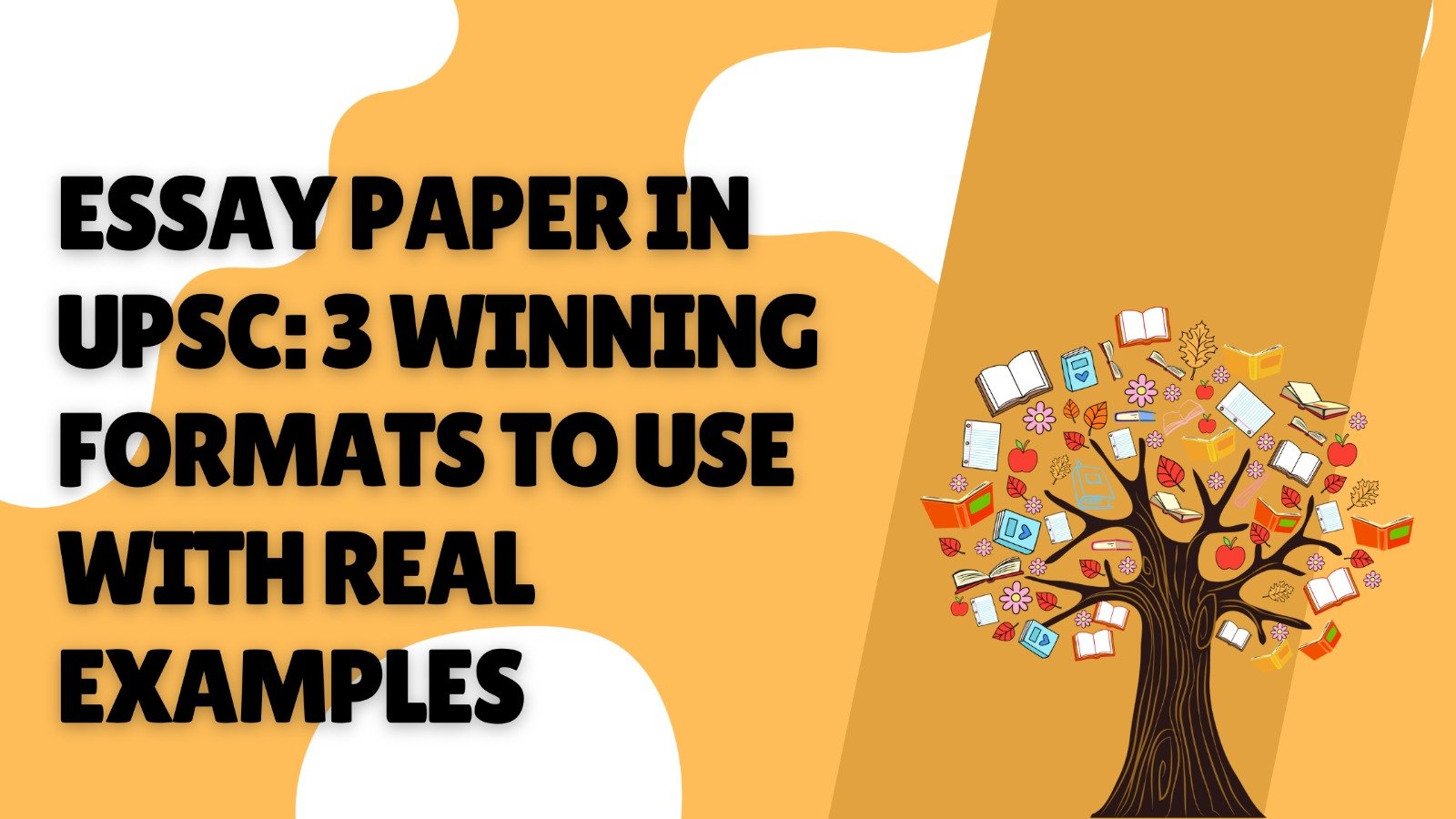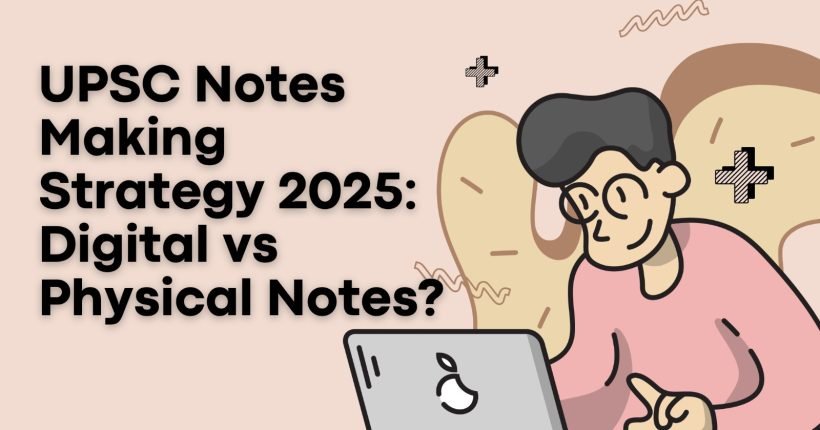UPSC Essay Paper is not just about writing — it’s about structuring thoughts in a way that impresses the examiner within the first few paragraphs. Let’s decode the 3 winning formats that toppers swear by!
What Makes UPSC Essay Paper Unique?
Unlike GS papers, UPSC’s Essay Paper (250 marks) tests your:
- Clarity of thought
- Structure and coherence
- Depth of argument
- Language and articulation
You get 2 essays to write in 3 hours, usually from abstract, philosophical, or socio-political themes.
So, how do toppers consistently score 130+?
They pick the right format — and stick to it.
Format 1 : The Thematic Approach
Best for: Abstract & philosophical topics (e.g., “Not all who wander are lost”)
Structure:
- Introduction: Anecdote, story or quote
- Core Themes: Divide essay into 3–5 dimensions
- Personal | Social | Political | Economic | Philosophical
- Case Studies & Examples
- Critique or Counter-view
- Conclusion: Circle back to intro + give a hopeful vision
Example Essay:
Topic: “What is research but a blind date with knowledge?”
Para Themes:
- What is research (philosophical start)
- Role of curiosity in human evolution
- Societal progress through exploration
- Scientific and social research case studies
- Caution against blind spots (ethics, AI risks)
- Conclusion: The journey continues…
Format 2: Problem–Solution Model
Best for: Governance, social or economic issue-based essays
(e.g., “Urbanization is not a problem but an opportunity”)
Structure:
- Intro: Define + Context
- Problem Analysis:
- Causes
- Impacts on stakeholders
Examples (India-specific)
3. Solutions:
- Govt. schemes
- Policy measures
- Global models + Innovation
4. Conclusion: Balanced + Forward-looking
Example Essay:
Topic: “Technology cannot replace human touch in healthcare.”
Structure:
- Define role of technology (AI, telemedicine)
- Why tech fails in emotional/palliative care
- Data privacy, trust, empathy gap
- Hybrid healthcare models (Tech + human)
- Conclusion: Tech as enabler, not replacer
Format 3: Chronological (Time-Based) Format
Best for: History + society-based essays
(e.g., “Democracy’s roots are deep in India’s soil”)
Structure:
- Intro: Story or quote from the past
- Ancient: Vedic sabhas, Buddhist sanghas
- Medieval: Bhakti/Sufi ethos, decentralization
- Modern: Freedom movement, Constitution
- Post-Independence: Strengths, shortcomings
- Present & Future Vision
- Conclusion: Rootedness + aspirational tone
Example Essay:
Topic: “Forests precede civilizations and deserts follow them.”
- History of deforestation (Harappan decline, Rome, modern Amazon)
- Link to human greed, industrialization
- Case studies: Chipko movement, afforestation drives
- Future: Sustainable dev, carbon credits
- Conclusion: Man must walk with nature, not over it
How to Choose the Right Format?
| Essay Type | Best Format |
| Philosophical/Abstract | Thematic |
| Policy/Governance | Problem–Solution |
| History/Culture/Tradition | Chronological |
Pro Tip: Read the topic 3–4 times. Ask: What does it demand — reflection, analysis, or narration?
UPSC MASTER Essay Boosters (Free Resource!)
Download: 30 Past-Year Essay Topics + Sample Format Outline
Join our Telegram Channel to get 10 Model Essays with reviews
Final Thoughts
No format is a magic bullet — but a well-structured essay always scores better than a meandering one. Master 2 of these formats, practice 1 essay/week, and you’ll see the difference in your confidence and marks.



